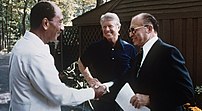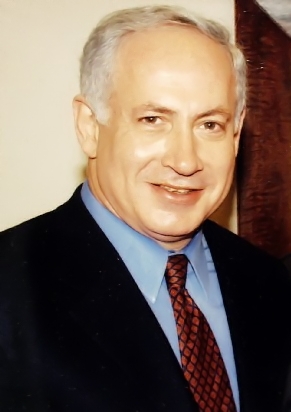These words are not easy for me to write, and still, they should be written. This post walks a fine line, but one that should be walked. It crosses bridges that should be crossed and reveals truths that should be discussed. Its purpose is to show that Israel is using increasingly alarming terror techniques in its fight against the Palestinians.
I further argue that at this point the state terror used by Israel imposes by far a greater risk to Israel itself than the Palestinian terror.
Some parallels between the Hamas and the Isareli government:
- Both do not acknowledge each other, even though they both were elected democratically by their own people. Furthermore, both choose violence in order to attempt to destroy the other. By doing so, both only strengthen their partner to this bloody dance.
- Both kill hundreds of civilians, on purpose. Yes, even Israel. For example, Israel used artillery and other inaccurate weapons during the last war. One cannot use these weapons in the most densely populated place on earth and hope that no civilians get killed. There is one difference between the Hamas and Israel, and Israel should not be proud of it: more Palestinians (overall and civilians) were killed during the 3 weeks of Israeli operation in Gaza compared with Israelis who got killed by Palestinians in the 9 years since the Second Intifada broke. 3 weeks vs. 9 years.
- Both kidnap soldiers and put them in inhumane conditions. Again, only one tiny difference: while the Hamas kidnapped one member of the Israeli army, Israel holds thousands of Hamas members.
- Both do so in the name of religion.
- Both need the other to exist in order to justify their own ideology of hatred and racism.
- This is a key point: they both hide behind civilians. One of the most common criticism towards the Hamas is that it operates from civic centers, and its soldiers use human shields to protect themselves. For example, the Jewish Chronicle published the following caricature last week:
Here is another similar caricature.
However, also Israel uses human shields. First, its biggest military bases are in the middle of civilian concentrations (HaKirya in Tel Aviv, Pikud Darom in Beer Sheva, etc). But I am not talking about this. I am talking about the Neighbor Procedure (נהל שכן).
Bear with me, this is tricky.
When searching for suspects from house to house, Israeli soldiers take local people and make them knock on the doors and open them, so that if the suspects open fire, the locals will get hurt and not the soldiers. This was declared illegal by the Israeli supreme court, yet nonetheless, the army still uses this procedure and ignores the court order.
More can be found here. Testimonials from the recent Gaza war can be found here: "soldiers had made them, at gun point, open doors and enter houses to search for Hamas members". And if you believe only Jews, here Israeli soldiers talk about using this procedure.
So again, both sides use human shields. Again, one difference - while Hamas uses its own people, Israel uses Palestinians to protect its soldiers.
- Both declare that their goals are to terrorize the other side. Israel calls it 'so they learn a lesson', but I am not sure how this is different.
- Both parties took advantage of the truce to prepare for the next war...
There are also differences, of course. Naturally, I do not defend the Hamas. It is a terror organization and Israel should protect itself against its violence.
However, Israel cannot - - - well, it can, it does, but it should not - become a terror organization itself.
Furthremore, I argue that this imposes a greater risk to Israel compared with the Palestinian terror. Why is it dangerous?
- First and foremost, we loose the moral ground and the basis to our existence.
- Second, it creates emotional scars also in the soldiers, that lead, so I believe, to increasing domestic violence - in home, on the road, between individuals, etc.
- Security wise - it gives legitimacy to the worst terror against Israel. For example, what can Israel claim now when Iranian missiles will start falling on Tel Aviv?
- It puts our democracy at risk. For example, in the recent war, there were many cases of pro-peace demonstrators being attacked by security forces and dehumanized. One example for such story was told by a friend of mine to the Guardian. Another example - the Israeli parliament voted for disqualifying the Arab parties from participating in the elections. (who said democracy is for all? Also in Iran the government can choose who will run in the 'democratic' process...). Luckily, this miserable decision was later overturned by court.
But my main point is not that this is not a smart move. My main point is that this simply should not be done.
Luckily, Jon Stewart found a better way to say it.


![Reblog this post [with Zemanta]](http://img.zemanta.com/reblog_e.png?x-id=adbeae93-9f08-4203-aca1-299e16bc1d34)

![Reblog this post [with Zemanta]](http://img.zemanta.com/reblog_e.png?x-id=272c147c-f677-47ab-b946-88d1604d2aa2)




![Reblog this post [with Zemanta]](http://img.zemanta.com/reblog_e.png?x-id=5687734e-1a49-4535-8d20-78d5d7fa53d2)





![Reblog this post [with Zemanta]](http://img.zemanta.com/reblog_e.png?x-id=1fe2168e-c46f-4369-92e9-fdd5932f2674)





